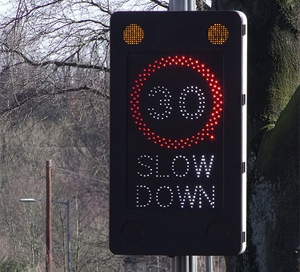By MasterTDM|2013-01-22T12:24:13+00:00January 22nd, 2013|International Tourism Context, literature review, Publication|1 Comment
As part of their master in Tourism Destination Management study program, the students have written literature reviews in the domain of “International Tourism Context”. In this third of six literature reviews Veronica Wee discusses the influence of user-generated content (UGC) and the importance of a solid social media strategy.
This research covers a critical analysis of online reviews in the tourism industry; challenges faced in online review management and methods of current social media strategies implemented by Destination Management Organizations (DMO’s), airline and hotel operators.
Introduction
Growing dependence on the Internet has transformed it into the main source of information (Sparks & Browning 2010). More recently, social media networks and user-generated content (UGC) have changed the way users share their experiences (Hvass & Munar 2012). In a more general context, social networking is a combination of online communities that provides a variety of platforms (eg. Emailing, Blogging, photo tagging, videos) to facilitate consumer interconnections (Bruyn & Lilien 2008) for interaction (Click & Petit 2010).
In the tourism industry, online applications, advance social websites (TripAdvisor, Yelp, IgoUgo, etc.), and online booking websites (Expedia.com, Hotels.com, Travelocity.com, etc) provide an interactive display of experiences and commentary review of a destination, property, facilities and restaurants (Litvin & Hoffman 2012). What was recorded in traditional form is now digitalized and shared globally (Munar 2012). The phenomenon of posting videos and digitalizing experiences developed a new paradigm of information sharing (Ruzic & Biloz 2010), which is now referred to as electronic word of mouth (Sparks & Browning 2010). Social media websites allow consumers to spread their experiences (Yu 2012), and interconnectivity and density of networks facilitate positive or negative reviews to travel quickly (Bruyn & Lilien 2008).
Travellers nowadays often use the Internet for destination research prior to decision-making. Online web applications and social media websites are a critical element in the travel planning process (Ruzic & Biloz 2010). It is apparent that 63 percent of leisure tourists and 69 percent of tourists on business use the Internet prior to planning trips, hotel bookings and airline reservations (European Travel Commission, 2010). Online reviews of a destination or property not only possess the ability to attract or detract a traveller, but also develop consumer expectations (Bruyn & Lilien 2008).
As many travellers consult online reviews before firming vacation plans (Vermuelen & Seegers 2009), it is evident that a level of trust is accorded, especially in positively framed reviews about previous traveller’s experience (Sparks & Browning 2010). Travellers are more influenced by online travel reviews and guides (European Travel Commission, 2012), as they believe reviews may assist in a better purchase decision (Qiang Ye et al. 2011). In this case, what are DMO’s doing to influence a traveller’s choice? Are the necessary steps and strategies being taken to explore this growing market?
[…]












